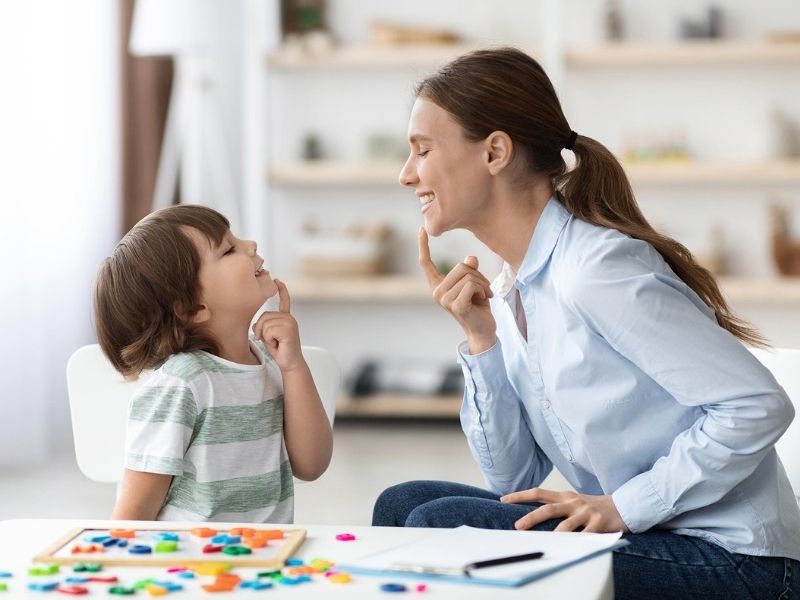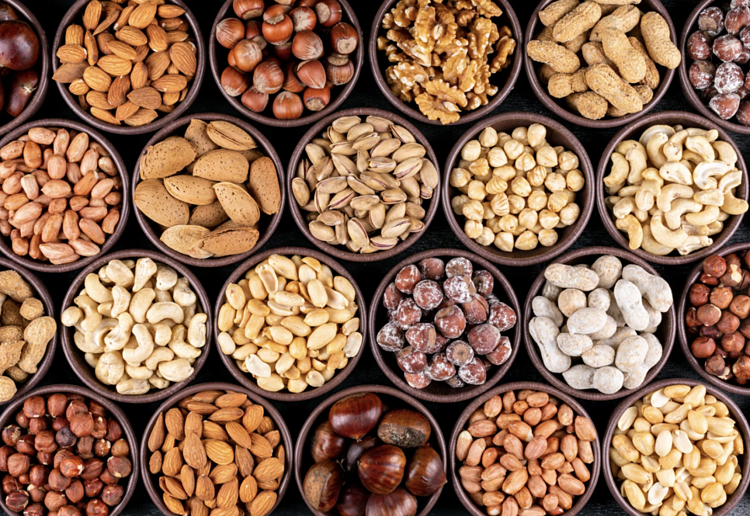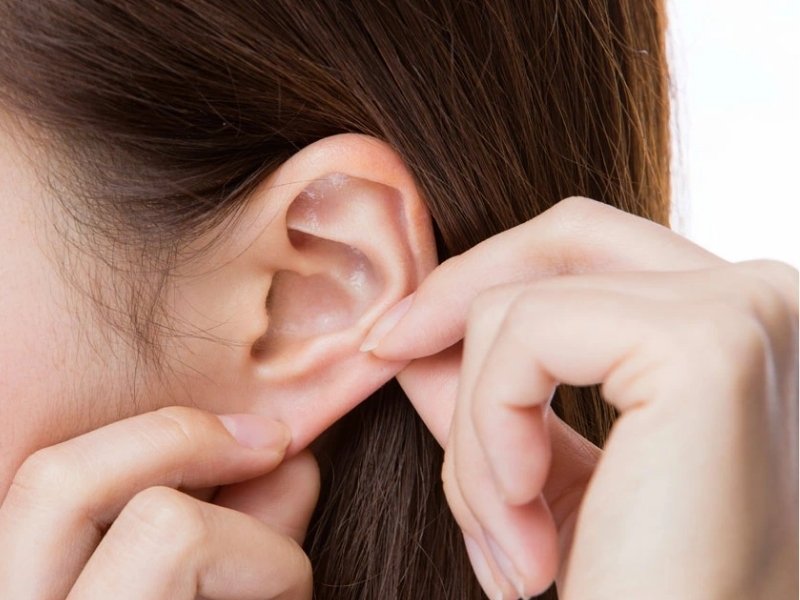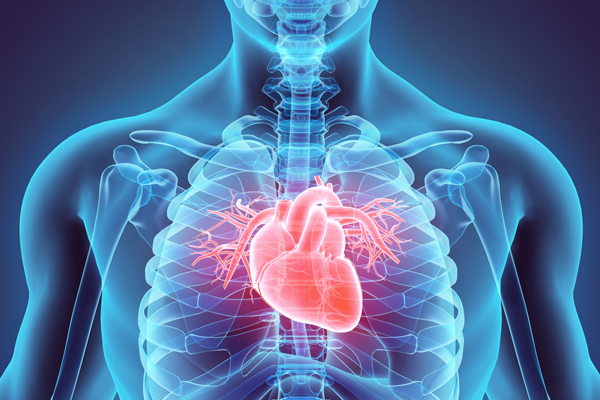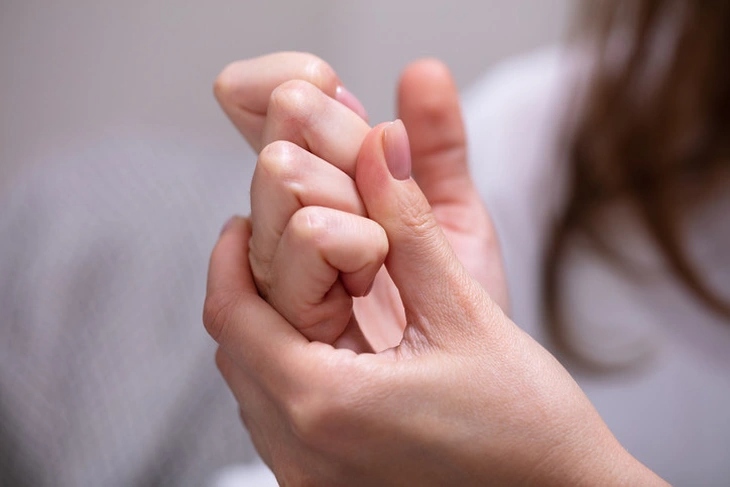Tự học tiếng anh 03: 100 từ thông dụng nhất trong tiếng anh rất hữu ích
17/04/2025 245 lượt xem- the /ðə/
- The cat sat on the mat.
- What is the time?
- be /biː/
- I want to be a doctor.
- They will be here soon.
- to /tuː/
- I need to go to the store.
- It’s important to study.
- of /əv/
- That is a picture of my family.
- He is a friend of mine.
- a /ə/
- I saw a bird in the tree.
- She has a new car.
- in /ɪn/
- The book is in the bag.
- We live in a big city.
- have /hæv/
- I have a dog.
- Do you have any questions?
- it /ɪt/
- It is raining outside.
- I like it very much.
- that /ðæt/
- That is my house over there.
- I didn’t know that.
- for /fɔːr/
- This gift is for you.
- We went for a walk.
- they /ðeɪ/
- They are playing in the park.
- Where did they go?
- I /aɪ/
- I am happy to see you.
- I like to read books.
- with /wɪð/
- I will go with you.
- She came with her brother.
- as /æz/
- He is as tall as his father.
- As soon as possible.
- not /nɒt/
- I do not like coffee.
- She is not here.
- on /ɒn/
- The book is on the table.
- He lives on the next street.
- she /ʃiː/
- She is a teacher.
- What did she say?
- at /æt/
- I will meet you at the station.
- The movie starts at 7 pm.
- by /baɪ/
- The letter was sent by mail.
- He sat by the window.
- this /ðɪs/
- This is my new phone.
- Did you see this?
- we /wiː/
- We are going on vacation.
- We had a great time.
- you /juː/
- How are you today?
- Can I help you?
- do /duː/
- What do you want to do?
- Do you speak English?
- but /bʌt/
- I want to go, but I am tired.
- It is small but useful.
- from /frɒm/
- He is from Canada.
- Where did you get this?
- or /ɔːr/
- Do you want tea or coffee?
- Is it black or white?
- which /wɪtʃ/
- Which one do you prefer?
- I don’t know which way to go.
- one /wʌn/
- I have one brother.
- This is the one I want.
- would /wʊd/
- I would like some water.
- Would you please help me?
- all /ɔːl/
- All the students are here.
- I ate all of it.
- will /wɪl/
- I will call you later.
- They will arrive tomorrow.
- there /ðeər/
- There is a cat on the roof.
- I went there last week.
- their /ðeər/
- They live in their new house.
- What are their names?
- what /wɒt/
- What is your name?
- I don’t know what happened.
- so /soʊ/
- It was so hot yesterday.
- So, what do you think?
- up /ʌp/
- The sun is coming up.
- Look up at the sky.
- more /mɔːr/
- I need more time.
- Can I have some more?
- out /aʊt/
- Let’s go out for dinner.
- The cat ran out of the house.
- if /ɪf/
- I will go if you go.
- What if it rains?
- about /əˈbaʊt/
- The movie is about a young boy.
- What are you talking about?
- who /huː/
- Who is that man?
- I don’t know who she is.
- get /ɡet/
- I need to get a new phone.
- What time did you get here?
- which /wɪtʃ/
- Which way should we go?
- I don’t know which one to choose.
- go /ɡoʊ/
- Let’s go to the beach.
- I have to go now.
- me /miː/
- Can you help me?
- She gave it to me.
- when /wen/
- When will you arrive?
- I don’t know when it happened.
- make /meɪk/
- I want to make a cake.
- They make good coffee here.
- can /kæn/
- I can swim very well.
- Can you open the door?
- like /laɪk/
- I like to play sports.
- What is she like?
- time /taɪm/
- What time is it?
- I don’t have much time.
- no /noʊ/
- No, thank you.
- There is no sugar left.
- just /dʒʌst/
- I just arrived.
- It’s just a joke.
- him /hɪm/
- I saw him yesterday.
- Can you give this to him?
- know /noʊ/
- I know her very well.
- Do you know the answer?
- take /teɪk/
- Please take a seat.
- I will take this one.
- people /ˈpiːpl̩/
- There were many people at the party.
- People are friendly here.
- into /ˈɪntuː/
- The cat jumped into the box.
- They went into the house.
- year /jɪər/
- This is my first year here.
- The new year starts in January.
- your /jʊər/
- What is your name?
- Is this your car?
- good /ɡʊd/
- Have a good day.
- The food was very good.
- some /sʌm/
- I would like some coffee.
- There are some books on the table.
- could /kʊd/
- Could you please help me?
- I could not believe it.
- them /ðem/
- I saw them at the park.
- Can you tell them the news?
- see /siː/
- I can see the ocean from here.
- Did you see that movie?
- other /ˈʌðər/
- I have no other options.
- What are the other possibilities?
- than /ðæn/
- He is taller than his brother.
- I like this more than that.
- then /ðen/
- First, we eat, then we go out.
- What happened then?
- now /naʊ/
- What are you doing now?
- I need it right now.
- look /lʊk/
- Look at that beautiful bird.
- Can you look after my cat?
- only /ˈoʊnli/
- I have only one ticket.
- This is the only way.
- come /kʌm/
- Please come in.
- When will you come back?
- over /ˈoʊvər/
- The plane flew over the city.
- Let’s talk over coffee.
- think /θɪŋk/
- What do you think about this?
- I think it will rain.
- also /ˈɔːlsoʊ/
- I like to swim and also to read.
- She is a doctor and also a writer.
- back /bæk/
- I will be back soon.
- He went back home.
- after /ˈæftər/
- I will call you after dinner.
- What happened after that?
- use /juːz/
- Can I use your phone?
- This is how you use it.
- two /tuː/
- I have two sisters.
- We need two more chairs.
- how /haʊ/
- How are you feeling?
- Do you know how to cook?
- our /aʊər/
- This is our house.
- What is our plan?
- work /wɜːrk/
- I go to work every day.
- He is busy with work.
- first /fɜːrst/
- This is my first time here.
- Who finished first?
- well /wel/
- I am feeling well, thank you.
- She sings very well.
- even /ˈiːvən/
- Even if it rains, we will go.
- He didn’t even say goodbye.
- new /njuː/
- I have a new job.
- They bought a new car.
- want /wɒnt/
- I want some pizza.
- Do you want to come with me?
- because /bɪˈkɒz/
- I am tired because I slept late.
- He was happy because he won.
- any /ˈeni/
- Do you have any questions?
- I don’t have any money.
- these /ðiːz/
- These are my new shoes.
- Do you like these flowers?
- give /ɡɪv/
- Can you give me a hand?
- They gave us a present.
- day /deɪ/
- Have a nice day.
- What day is it today?
- most /moʊst/
- Most people like coffee.
- This is the most beautiful place.
- us /ʌs/
- Can you help us?
- They invited us to their party.
- very /ˈveri/
- It is very cold outside.
- Thank you very much.
- through /θruː/
- The train went through the tunnel.
- We walked through the forest.
- under /ˈʌndər/
- The cat is under the table.
- The boat went under the bridge.
- need /niːd/
- I need some help.
- Do you need anything else?
- where /weər/
- Where do you live?
- I don’t know where it is.
- before /bɪˈfɔːr/
- I have seen this movie before.
- Please come before 5 pm.
- around /əˈraʊnd/
- The Earth goes around the sun.
- There are trees all around the house.








